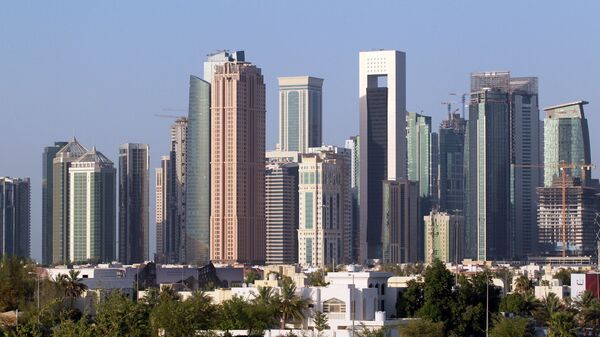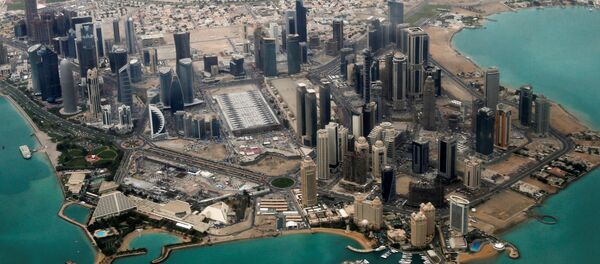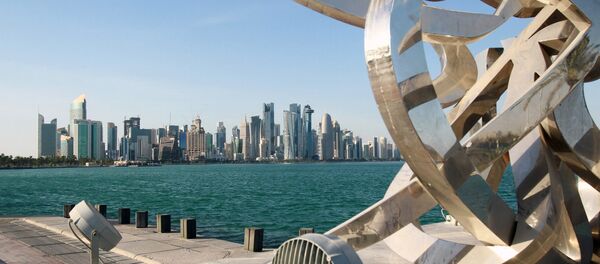A number of countries, including Kuwait, Turkey and the United States, have already offered to mediate the crisis.
On Friday, Kuwait handed a list of demands from the four Arab states to Qatar. The list included demands to reduce ties with Tehran, stop military cooperation with Ankara and shut down its Al Jazeera TV channel. Shortly afterwards, that Doha said that the demands were unfeasible.
US IMPACT ON CONFLICT
Allen Keiswetter, a scholar at the Middle East Institute and former US Department of State official, told Sputnik that the ongoing crisis is not the first to happen between Doha and its neighbors. However, expert speculated that, this time around, the Gulf nations might have been "emboldened" by Trump's recent visit to the Middle East and meetings with the Gulf Cooperation Council (GCC) leaders.
"This time, I believe, the Gulf states and Egypt feel emboldened by Trump’s visit. The problem is that the US President is wish-washy sometimes but he makes public statement and tweets, that are very supportive of Saudis, however, I am not absolutely sure that there is a direct link between his tweets and the US policy, at least, these statements add to the feeling of solidarity among GCC and its allies against Qatar following the US President’s visit," the expert said.
At the same time, Keiswetter said that Tillerson had been exerting more balanced efforts to settle the crisis, differing from the official position of the White House. The expert cited the time when the State Department stressed that the Arab states' requests to Doha were "a little strong," a position which to some degree is held by.
Keiswetter's words were echoed by Risk Imad, a founder and a general manager of the Lebanon-based Isticharia for Strategic and Communications Studies Institute (ISCS).
"We have seen completely different points of view between President Trump, Foreign Secretary of State Tillerson and Pentagon on the diplomatic row in the Middle East. We can clearly see that some in the US still support Qatar, another took a decision to support the Saudis," Imad told Sputnik.
OUTCOME
Speaking about the prospects of resolving the Gulf row, Keiswetter suggested that Kuwait would continue its reconciliation efforts.
"To overcome the similar crisis in 2014 it took 9 months for the Qataris to reach a deal through the mediation of the Kuwaitis. I believe that the likely scenario is that the Kuwaitis will continue their mediation efforts and the GCC will realize that they have much more in common as I cannot think of anything that probably makes the Iranians happier than to see the divisions in the GCC," the scholar said.
At the same time he said that there were certain points that limit potential Qatar's step toward the demands of the Gulf states, as Doha had its own interests that it would like to protect.
"I fear that this new division in GCC and the Middle East with bring economic crisis and will be followed by proxy wars between the two camps, such will continue to support their subordinates terrorist organizations in order they carry our terrorist attacks inside other camp. We may also see some coup d'état attempts and some real confrontation similar what we can see right now in Yemen, Syria. We are talking about a long and unstable situation and this diplomatic row is just the first step," the scholar said.
He added that the recent developments in the region could be a sign of a preparation for a bigger conflict that could reconstruct the existing regional order and the international trade system as well.




